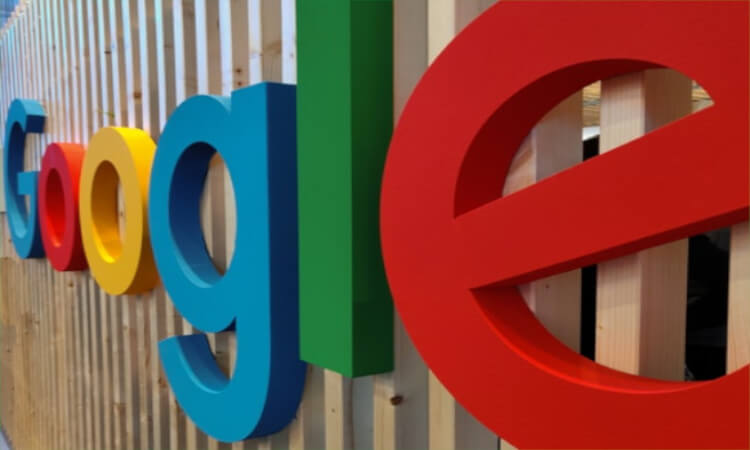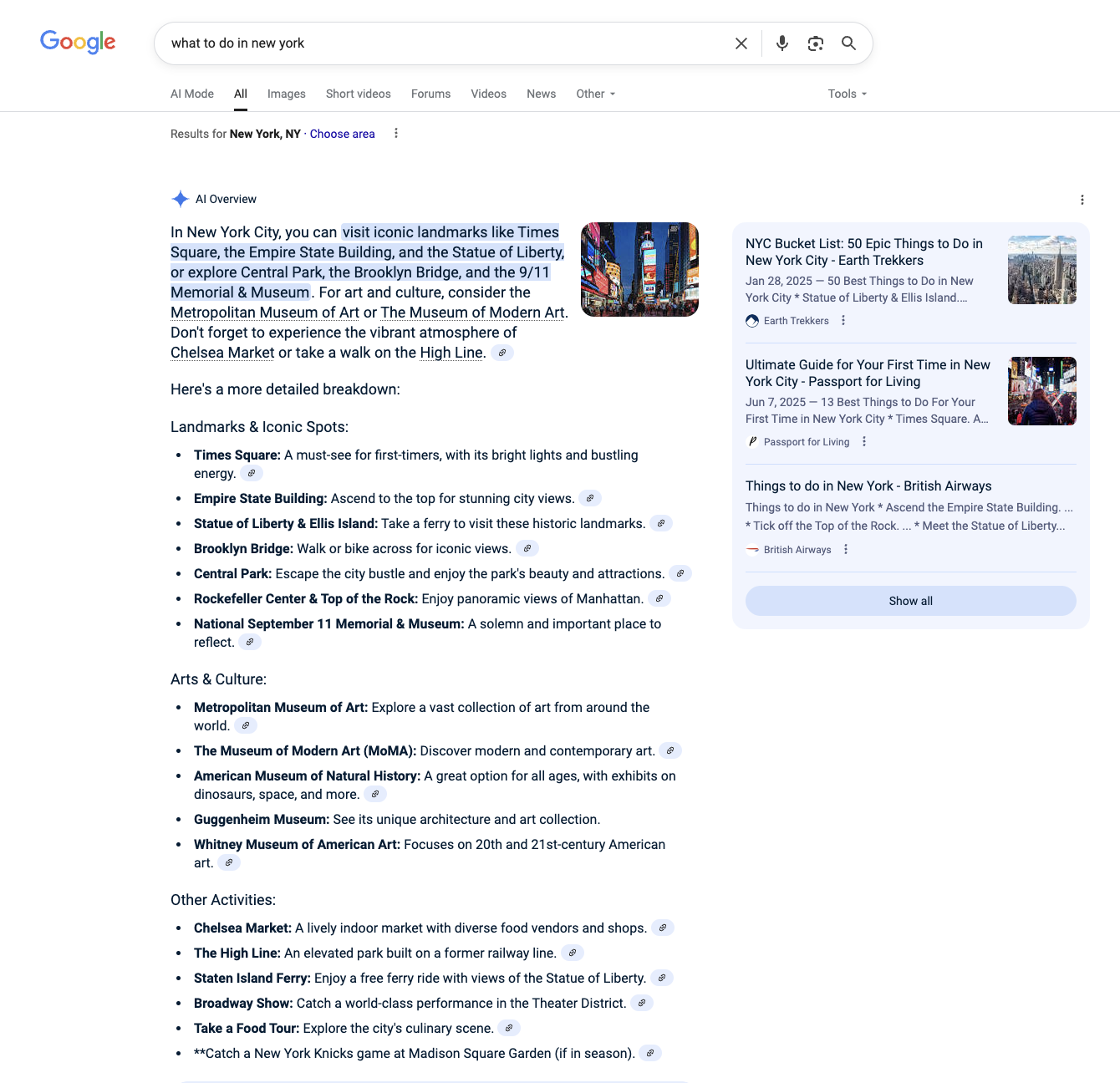
Google Metasearch (aka Google Hotel Ads) is one of the most important channels for hotels looking to drive direct bookings. But the recent rise in AI-powered search results – and resulting reduction in click-through rates – has raised many questions about how this critical channel will work in an AI-powered world.
NB: This is an article from Triptease
Subscribe to our weekly newsletter and stay up to date
Now we’re seeing the first part of the answer: Google has started to integrate hotel ads into the results delivered by its Gemini AI, potentially making metasearch an even more vital marketing channel.
At the time of writing we’ve only seen this new output in information-led travel searches originating from the US, but it’s common for Google to test new functions in a limited area before rolling out more widely.
What does this experience look like?
Let’s start with “itinerary for a week in new york”. In the ‘traditional’ Google search interface you may now see an AI Overview which suggests a detailed, day-by-day itinerary.
Here’s the current US experience:
https://www.loom.com/share/ab332ac5836f4e9896fadf3d8da80869
The new “Where to stay” section provides a dropdown showing listings which link out to Google Hotel Ads, and a map-based overview of the same listings.
Compare that to what the UK AI Overviews experience looks like:
https://www.loom.com/share/ffcc305521f04e1fa2bc0562ce0389c5
This still acts like early AI search experiences, with links to where the information came from but no specific advertising within the interface.
How often do Google Hotel Ads show up in AI search?
In our testing, metasearch ads mostly show up in research-focused queries. For example, a query asking for a “New York Itinerary”, “Planning a trip to New York”, or “NYC weekend trip” triggers AI Overviews with the “where to stay” dropdown (like the example above).
More hotel-specific queries, like “where to stay in New York”, appear to still surface Google’s Travel Promotion Ads (ads that Google offers to hotels looking to target guests earlier in their journey, before they search for specific hotels).
And more activity-focused queries like “what to do in New York” seem to stick to the traditional AI overview layout offering information–without the direct advertisements.

What about Google AI Mode?
Switch to AI Mode – Google’s new ChatGPT-style conversational interface (also not yet available everywhere) – and things change again.
For the search “itinerary for a week in new york” that we used above, US searchers get a detailed itinerary suggestion without any metasearch links.




